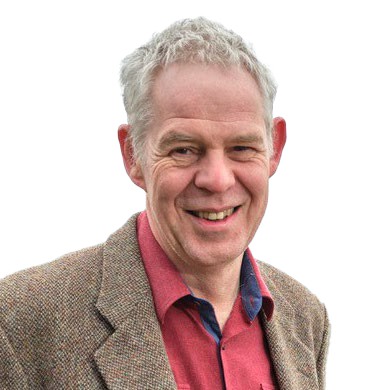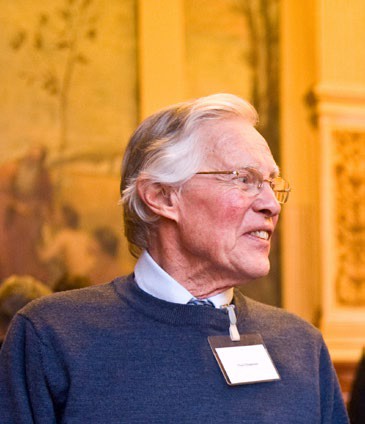“Nothing About Us Without Us Is For Us”
The Rev Dr Martin Johnstone reflects on the life of campaigner Paul Chapman.

The Rev Dr Martin Johnstone
RECENTLY my good friend Paul Chapman died. He was ninety-one. Over the last twenty years, I have variously described Paul as a young man in his seventies, eighties and nineties. He was, in every sense of the word, extraordinary.
During a long and incredibly full life, mostly lived in the United States, he did many awe-inspiring things. He founded a Centre for Seafarers’ Rights. He participated deeply in the Black Civil Rights movement leading to a lifetime commitment to nonviolent dialogue. He worked alongside the unemployed and homeless in New York, committed to their wisdom and rights.
Paul, and his wife Gayle’s decision to come to Scotland and spend five years volunteering alongside churches in our economically poorest neighbourhoods, was life changing for me; and I think for many others.
One of the things which was birthed out of those years was the first Poverty Truth Commission, launched in Scotland in 2009. Although neither of us knew it at the time, that first commission has led to similar commissions being established in over thirty locations in every part of the UK.
Thanks to Paul the mantra of Poverty Truth Commissions, borrowed from the disability rights, civil rights and antiapartheid movements, that “Nothing About Us Without Us Is For Us” has entered the lexicon and psyche of thousands. That simple, but profound, understanding, that if we are to truly tackle injustice, we must do it in the slipstream of those for whom life is one relenting injustice after another, was his gift to us.
Paul was, in the biblical sense, prophetic. That meant he could be an uncomfortable person to be around, but the truth of what he said – and how he lived – was a challenge that you could not ignore.
We would joke about the importance of listening. “People always tell me that I am a wonderful listener,” he would tell me. “But the truth is I am increasingly deaf and people talk so fast that I find it hard to really hear. So I need to work hard at listening deeply, and encourage people to slow down.”
Another thing about Paul – perhaps the reason that I always referred to him as a young man – was that he remained relentlessly curious. He wanted to really understand what life was like for other people; and what could really make a difference. Curiosity, and that deliberate decision not to rush to ill-thought through (and often ill-conceived) solutions is such an important dimension of leadership, particularly in uncertain times.
However, perhaps Paul’s most striking leadership quality was that he really, really did not want to be in the limelight. I would always find him at the back of the room. He always wanted the attention to be focused elsewhere, particularly on those who understood poverty in their guts and not just their heads.

Paul Chapman
When leaders from across the UK get in touch about setting up a Poverty Truth Commission in their city or region, one of the things we ask them is: “Are you willing to get off the stage and let others be in the limelight?” This was another element of leadership that I learnt from Paul: that leaders who want more power are dangerous, whereas leaders who want to share that power are a blessing.
The art of listening. The need to encourage people to slow down. An ongoing curiosity which constantly builds deeper understanding. A willingness to enable others. Perhaps, above all, a desire to espouse a model of leadership which is rooted in the willingness to be a follower. All of these, and many more, are things we learned from Paul.
Thank God for Paul Chapman.